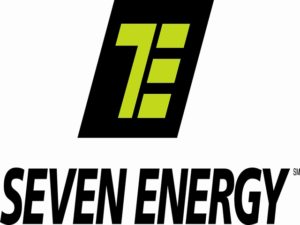
By Modupe Gbadeyanka
Fitch Ratings has downgraded Nigeria-based Seven Energy International Limited’s Issuer Default Rating to ‘RD’ from ‘C’ following the announcement of the results of the consent solicitation for the 10.25 percent $300m senior secured notes due 2021: 95.31 percent of the noteholders voted in favour of the proposal. Simultaneously, Fitch has affirmed the senior secured rating of wholly owned subsidiary Seven Energy Finance Limited’s $300m notes at ‘C’ with a ‘RR6’ Recovery Rating.
The accepted proposal qualifies as a distressed debt exchange under Fitch’s criteria as it imposes a material reduction in terms compared with the original ones and is conducted to avoid a payment default. Under the new terms, Seven Energy may choose to pay interest on the notes in kind, ie by increasing the principal amount of the outstanding notes or by issuing additional notes for up to four coupon payments between 11 October 2016 and 11 April 2018.
Seven Energy remains under severe liquidity pressure due to a combination of factors including: the fall in oil prices, a limited ability to convert naira into dollars, and the prolonged Forcados export pipeline closure, which has resulted in no oil lifting since February 2016. In addition to the notes consent solicitation, the company has recently agreed with the Accugas IV facility bank lenders to defer the amortisation schedule for debt payments into 2018. It is also working on a new facility with Nigerian and international banks and development finance institutions for longer-term credit facilities. Therefore the ‘RD’ rating is likely to remain until we have more clarity on Seven Energy’s post-deal liquidity and financial structure.
KEY RATING DRIVERS
Developing Natural Gas Business
Seven Energy’s management views the natural gas business in Nigeria’s southeast as an important growth driver for the company. In 9M16, Seven Energy’s average deliveries of natural gas reached 80 million cubic feet per day (MMcfpd), up from 64MMcfpd in 9M15. Its gas offtakers include three power stations (Alaoji, Calabar and Ibom), the Unicem cement plant and a fertiliser factory. In November 2016, Seven Energy completed the 69km Uquo-Creek Town pipeline to supply gas to Calabar and Unicem and signed a USD112m partial risk guarantee with Nigeria’s federal government for gas supply to Calabar and other customers.
The company is now on track to ramp up gas sales to 150MMcfpd and beyond. The installation of electricity distribution infrastructure to allow the power stations to run at full capacity has now been completed and Calabar is able to generate additional electricity.
The natural gas assets are fully ring-fenced and serve as security for the Accugas IV loan. There is a risk that the lenders may decide to enforce the security, stripping the company of its main cash generating asset and effectively forcing it into liquidation.
Strategic Alliance Agreement Halted
All Seven Energy’s oil liftings from OML 4, 38 and 41 under the strategic alliance agreement with the state-owned NPDC have been stopped since February 2016, as the Forcados oil terminal remains shut due to the rise in militant attacks. Management gives no estimate on when Forcados will be restarted and we understand is considering alternative means to export crude.
Naira Convertibility Issues
Seven Energy’s natural gas revenues are US dollar pegged but are received in naira. We understand from management that there are difficulties in Nigeria regarding exchanging naira into US dollars, which are needed to service the compay’s US dollar debt at the official exchange rate. This negatively affects the company’s liquidity as long as Forcados remains shut, meaning that the company receives no US dollar revenue under the strategic alliance agreement.
KEY ASSUMPTIONS
– Brent oil price deck of USD44/bbl in 2016, USD45/bbl in 2017, USD55/bbl 2018.
– SAA’s FCF negative in 2016; turning positive in 2017-2018.
– Natural gas sales volumes ramping up to 150MMcfpd a year in 2017 and 2018.
– Proposed restructuring implemented.
RATING SENSITIVITIES
Future Developments That May, Individually or Collectively, Lead to Positive Rating Action
– The ‘RD’ rating will be reviewed following the financial restructuring once sufficient information is available to reflect the appropriate IDR for the issuer’s post-exchange capital structure, risk profile and prospects in accordance with relevant criteria.
Future Developments That May, Individually or Collectively, Lead to Negative Rating Action
– Bankruptcy filings, administration, receivership, liquidation or other formal winding-up procedure affecting Seven Energy would result in a downgrade to ‘D’.
LIQUIDITY
Limited Liquidity
At 30 September 2016, Seven Energy’s cash on hand was USD24m, well short of the USD396m in short-term debt at this date; this amount is prior to ongoing debt renegotiations. In 9M16, Seven Energy used up nearly USD92m in cash due to high capex and interest payments, before new equity raising and debt refinancing. We understand the company is negotiating to increase the limit of its existing working-capital facility.












